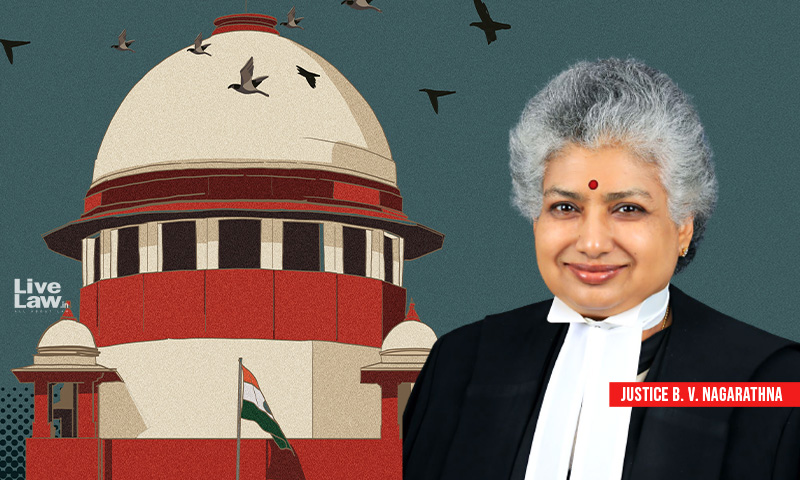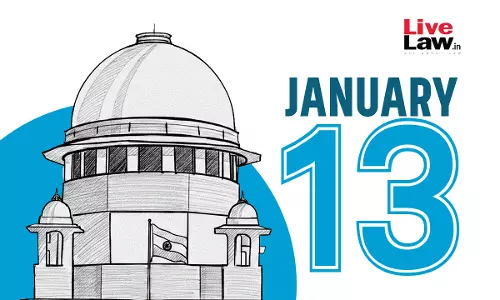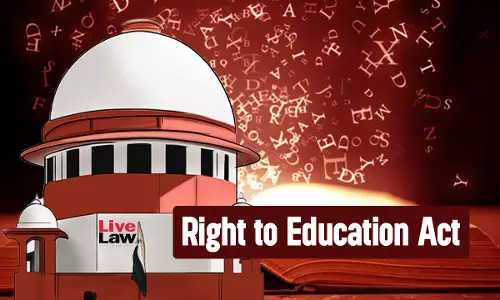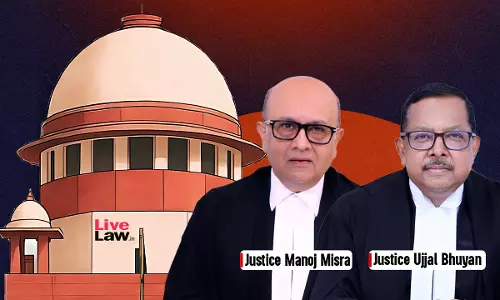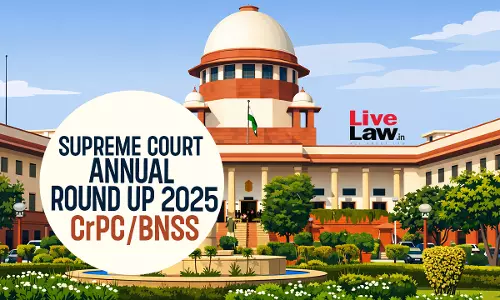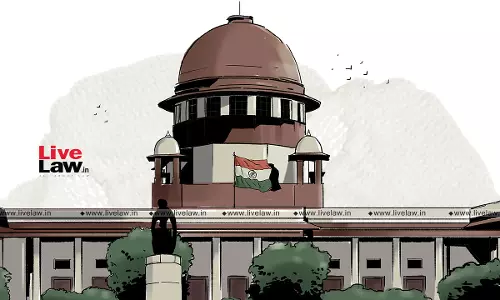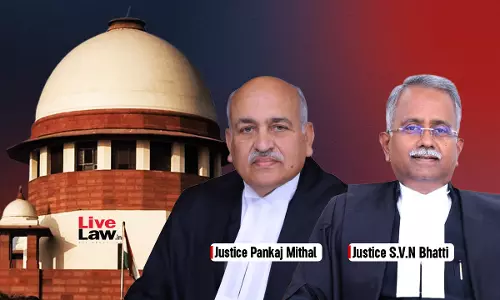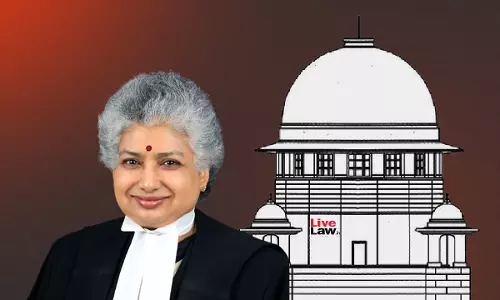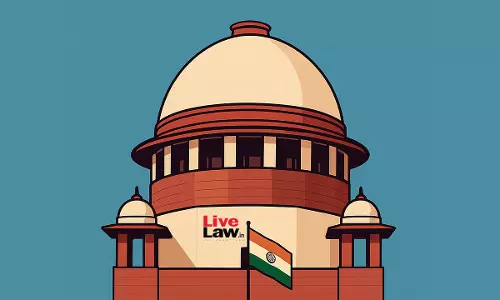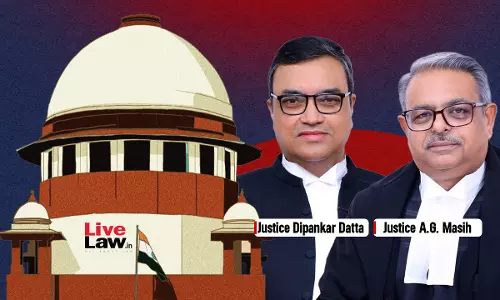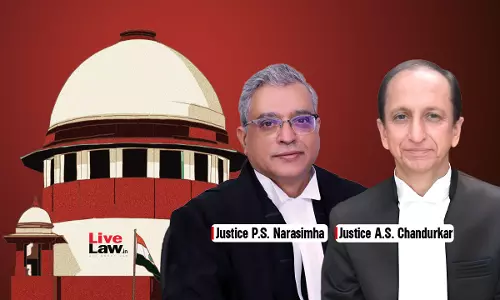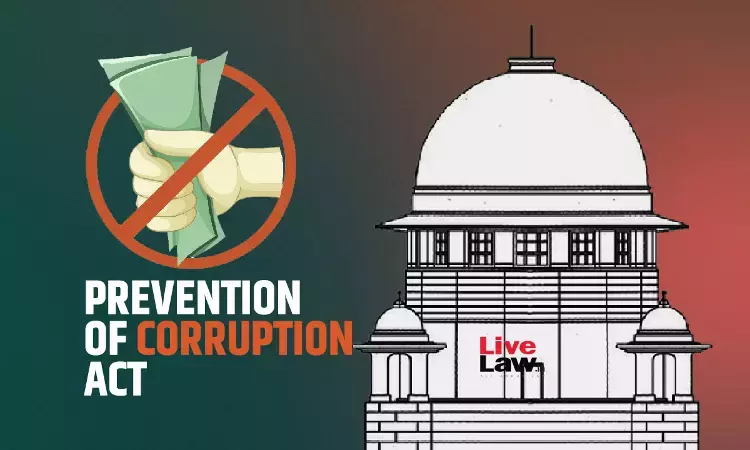Supreme court
'Protects Dishonest Public Servants' : Why Justice Nagarathna Struck Down S.17A Prevention Of Corruption Act
Justice BV Nagarathna of the Supreme Court held that Section 17A of the Prevention of Corruption Act, 1988 is unconstitutional, concluding that the requirement of prior approval before even initiating an inquiry or investigation is contrary to the object of the anti-corruption law and effectively shields corrupt public servants.“While the patent purpose of the provision is for the purpose...
Supreme Court Daily Round-Up : January 13, 2026
Links to the reports published on January 13 :Supreme Court To Hear Plea To Declare AYUSH Doctors As 'Medical Practitioners' Under Drugs & Magic Remedies (Objectionable Ads) ActSupreme Court Delivers Split Verdict On Validity Of S.17A Prevention Of Corruption Act Mandating Prior Sanction For InvestigationRight To Education Act | Ensure Admission Of Poor Students For Free Education In...
Supreme Court Issues Directions To Effectively Implement 25% RTE Quota In Pvt Schools, Directs States To Frame Rules
The Supreme Court issued a slew of directions for the effective implementation of Section 12(1)(c) of the Right to Free and Compulsory Education Act, 2009 (RTE Act), which mandates that private unaided schools must admit 25% of their strength from students belonging to economically weaker sections for free education.The Court observed that the concept of "neighbourhood schools" are envisaged...
Order XXI Rule 102 CPC | Transferee Pendente Lite Has No Right To Obstruct Execution Of Decree : Supreme Court
The Supreme Court reaffirmed that a purchaser who acquires property during the pendency of litigation, as a transferee pendente lite, has no right to obstruct the execution of the decree and remains bound by the outcome of the proceedings, holding the transfer strictly subservient to the decree. A Bench of Justices Manoj Misra and Ujjal Bhuyan upheld the Bombay High Court's ruling dismissing...
Supreme Court Annual Round Up 2025: CrPC / BNSS
1. S. 482 CrPC/S.528 BNSS | Supreme Court Lays Down Four-Step Test For High Courts To Quash Criminal CasesIn a significant ruling, the Supreme Court has established a four-step test for High Courts to follow when considering petitions to quash criminal proceedings under Section 482 of the Code of Criminal Procedure (CrPC) [now Section 528 of the Bharatiya Nagarik Suraksha Sanhita, BNSS]....
General Provident Fund | Succession Certificate Not Necessary For Nominee To Collect PF Amount Above ₹5,000 : Supreme Court
The Supreme Court recently held that even where the General Provident Fund balance exceeds ₹5,000, a valid nominee is entitled to receive the amount without being required to first produce a succession certificate, probate, or letters of administration, and that insisting on such documents would render the concept of nomination otiose.“Consequently, this Court is of the view that in cases...
Supreme Court Directs Coal India To Appoint Candidate With Multiple Disabilities
The Supreme Court today(January 13) directed the Chairman of Coal India Limited to create a supernumerary post for one person, who was denied employment after having qualified for the interview in 2016 because she suffered from multiple disabilities. The vacancy advertisement did not mention multiple disabilities, and therefore, she had applied as a visually handicapped candidate. A...
NCDRC Decree Against Builder Company Can't Be Executed Against Directors/Promoters Without Personal Liability Fixed: Supreme Court
The Supreme Court on Monday (January 12) observed that the homebuyers cannot execute a decree, obtained solely against a builder company, against its directors or promoters personally, unless a specific finding of liability was made against them in the original proceedings. “It is trite that a decree cannot, by process of execution, be employed to shift or enlarge liability so as to...
Supreme Court Delivers Split Verdict On Validity Of S.17A Prevention Of Corruption Act Mandating Prior Sanction For Investigation
A two-judge bench of the Supreme Court today delivered a split verdict on the constitutionality of Section 17A of the Prevention of Corruption Act, inserted by the 2018 amendment, which mandates that there should be a prior sanction from the Government to launch an investigation against a public servant under the Act.While Justice BV Nagarathna held that Section 17A is unconstitutional,...



